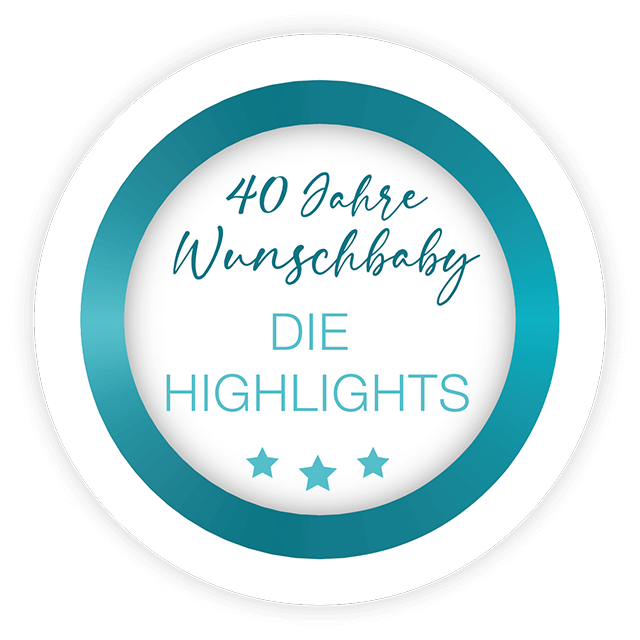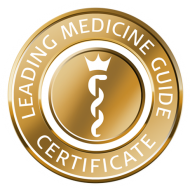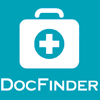Was unsere Patienten sagen
Die fruchtbaren Tage: der Schlüssel zum Kinderwunsch und zur Kinderwunschbehandlung?
Die fruchtbaren Tage im weiblichen Zyklus beziehen sich auf den Zeitraum um den Eisprung herum, wenn eine Frau am wahrscheinlichsten schwanger werden kann. Der Eisprung findet in der Regel etwa in der Mitte des Menstruationszyklus statt, etwa 14 Tage vor Beginn der nächsten Periode. Die fruchtbaren Tage erstrecken sich normalerweise über einen Zeitraum von etwa fünf Tagen vor Einsetzen des Einsprunges.Für Paare, die sich ihren Kinderwunsch erfüllen möchten, ist es wichtig, die fruchtbaren Tage im Blick zu behalten. Dies kann durch die Verwendung von Ovulationstests, die Beobachtung des Zervixschleims und die Verfolgung des Menstruationszyklus erfolgen. Durch das gezielte Timing des Geschlechtsverkehrs während der fruchtbaren Tage können Paare ihre Chancen auf eine Schwangerschaft erhöhen. Dies heißt jedoch nicht immer, dass an einem einzelnen Tag gezielt miteinander geschlafen werden sollte. Es ist mitunter sogar besser wenn mehrmals, innerhalb dieses Zeitfenster das Paar miteinander Verkehr hat.Die Kenntnis der fruchtbaren Tage spielt auch eine wichtige Rolle bei der Kinderwunschbehandlung, insbesondere bei assistierten Reproduktionstechniken wie der In-vitro-Fertilisation (IVF). Bei IVF werden die Eizellen außerhalb des Körpers entnommen und in einem Labor mit den Spermien des Partners oder Spenders befruchtet. Die Embryonen werden dann in die Gebärmutter eingeführt, normalerweise einige Tage nach dem Eisprung, um eine Schwangerschaft zu ermöglichen. Daher kann es hilfreich sein den Zeitpunkt der Eizellentnahme und des Embryonentransfers entsprechend dem Zyklus der Frau zu planen, um die Erfolgschancen zu maximieren.Abschließend können wir sagen, dass die Kenntnis der fruchtbaren Tage ein wesentlicher Bestandteil des Kinderwunsches ist, sei es auf natürliche Weise oder im Rahmen einer Kinderwunschbehandlung. Paare, die diesen Zeitpunkt im Auge behalten und entsprechend handeln, können ihre Chancen auf eine erfolgreiche Schwangerschaft erhöhen und ihrem Traum von einer Familie näherkommen.Ihre fruchtbaren Tage können Sie auf dieser Seite berechnen.Kinderwunsch & persönliche Erfahrungen als Vater
Vor wenigen Wochen ist sein zweites Baby auf die Welt gekommen. Was sich für ihn seit dem ersten Baby geändert hat, welche Erfahrungen er für das zweite Baby mitgenommen hat und welche Tipps er für andere Paare hat, klärt Mag. Julia Ecker mit Priv. Doz. DDr. Feichtinger vom Wunschbaby Institut Feichtinger in Wien in dieser Podcast Episode.Kinderwunsch & Unfruchtbarkeit
Zusammen mit Mag. Julia Ecker werden die häufigsten Zeichen für Unfruchtbarkeit bei Frau und Mann besprochen, in welchem Zeitraum Paare mit einer Schwangerschaft rechnen dürfen und welche Schritte zur Abklärung die ersten sind, wenn der Kinderwunsch über diesen Zeitraum hinaus unerfüllt bleibt.Sehr geehrter Herr Professor, liebes Wunschbabyteam!
Spät aber doch wollen wir Ihnen freudestrahlend und überglücklich ein Foto von unserem B. übersenden, der gesund geboren wurde. Nochmals vielen Dank für die nette und vor allem erfolgreiche Betreuung in der Wunschbabyklinik. Familie S.Internationale Kinderwunschbehandlung in Zeiten von Corona
Die Corona Krise hat auch zu großen Einschränkungen in der Reproduktionsmedizin geführt. Viele Paare konnten während der Zeit des Lockdowns ihren Kinderwunsch nicht weiterverfolgen. In Österreich kann seit der schrittweisen Lockerung der Beschränkungen auch wieder das volle Spektrum der Reproduktionsmedizin in Anspruch genommen werden.Seither merken wir einen steigenden Bedarf von Paaren welche in ihrem Land momentan keine sichere und qualitativ hochwertige Behandlung durchlaufen können. Besonders aus den USA wenden sich vermehrt Paare an uns da die derzeitige COVID Situation dort prekär ist und die Kosten für eine Behandlung im Vergleich bei uns sehr günstig sind.Oft bleiben Paare sogar länger als die notwendigen 10-14 Tage in Wien da die Situation in ihren Heimatländern sehr angespannt ist. Um internationalen Paaren in dieser schwierigen Zeit den Zugang zu erleichtern bieten wir auch weiterhin online Erstgespräche an um die Behandlung möglichst unkompliziert planen zu können.Lesen Sie mehr

ICSI – Intracytoplasmic Sperm Injection
In contrast to IVF, a single sperm is selected from the semen sample and directly injected into the egg cell.

Indication
Intracytoplasmic sperm injection is indicated when the cause of unwanted childlessness is due to poor sperm quality or quantity. If the total amount of sperm is too low, the mobility of the sperm is sperm is limited, and/or the total number of malformed sperm is increased, then “natural” fertilization is nearly impossible. Therefore, fertilization may be facilitated with the help of a single microinjection.
Success rates
The rate of getting pregnant with the help of ICSI is about 30-40% per cycle, depending on the age of the couple, the hormonal balance at the start of treatment, if any underlying illnesses are present (such as stress, nicotine use, being overweight, indulging in excessive alcohol consumption, etc.)
Procedure
A treatment with IVF or ICSI almost always takes place (with very few exceptions) after hormonal stimulation of the ovaries. The goal of hormonal treatment is to stimulate the maturation of more follicles in both ovaries; this increases the chance of obtaining vital, potentially fertile egg cells during the follicular puncture.
A preparatory phase (“down-regulation”) is needed to prepare the body for the actual stimulation by suppressing the body's own hormone production or release. This so-called "down-regulation" can take place either by applying daily injections under the skin (subcutaneous) or through oral intake of certain medications. This preparatory phase helps make controlling the stimulation phase much easier.
FSH (follicle-stimulating hormone) and LH (luteinizing hormone) are used in their pure hormonal forms or combined for the subsequent stimulation of the ovaries. Throughout the hormonal treatment, a specific dose (dependent on weight, age, etc.) is administered daily at the same time every day through subcutaneous injections.
The use of these medications and how they are applied will be explained in detail when starting treatment. The injection of these medications will be demonstrated so that patients and/or their partners can inject themselves daily, so that daily visits to the doctor are not necessary.
The number of follicles, the course of their growth, and the development of the uterine lining will be closely observed per ultrasound. Once the follicles reach a certain size, ovulation will be triggered using the hormone hCG (human chorionic gonadotropin). This technique helps determine the optimal time for egg cell retrieval—namely, shortly before ovulation.
The follicular puncture
The egg cells are removed through transvaginal extraction (through the vagina) under ultrasound guidance 36 hours after the application of the “ovulation stimulating shot”. A needle is first used to focus the follicles under ultrasound guidance, and then to puncture and collect the follicular fluid containing the egg cells (oocytes).
Afterward, the egg cells are separated from the follicular fluid microscopically and transferred to a special culture medium and placed in an incubator at 37°C.
On average, the follicular puncture only lasts 5-15 minutes, depending on the number of follicles. To make the procedure more comfortable, our patients receive a combination of sleep and pain medication. The follicular puncture is performed on an outpatient basis, and a post-procedural 1-2-hour observational period in our relaxation rooms is necessary afterward.
The semen collection
The semen is obtained on the day of the follicular puncture through masturbation, after 2-3 days of abstinence (no ejaculation). This is sometimes difficult, especially when “ordered” to do so, or due to stress/time pressure. Therefore, in seldom circumstances, it is also possible to bring the semen sample from home. It should be noted, however, that the period between semen collection and delivery of the sample to the institute cannot exceed two hours.
Fertilization: treatment with ICSI
The egg cells obtained during the follicular puncture are fertilized on the same day as their retrieval. The idea behind treatment with ICSI is a microscopically assisted “imitation” of the natural fertilization process: the egg cells are held in place under the microscope using a glass pipette, and a single sperm is inserted directly into each egg cell. The next day, the egg cells are brought back under the microscope to asses if any of the egg cells show signs of successful fertilization (for example, if two pronuclei and two polar bodies are present).
The embryo transfer
2-5 days after fertilization, the embryo is brought into the uterus using a thin, flexible plastic tube (catheter) under ultrasound guidance. Which day the embryo transfer will take place on is dependent on the number of fertilized eggs. If 1-4 egg cells are successfully fertilized, then they are usually transferred to the uterus 2-3 days after the follicular puncture. During the 2-3 days, the embryos are assessed daily regarding their development (cell division) and other specific requirements, such as cell division rates and consistency of cell division. The embryos with the best quality are selected for transfer.
If there are five or more embryos, then the transfer is performed five days after fertilization, which is referred to as a blastocyst transfer. A blastocyst is the furthest stage of development that can take place outside of the human body. If more than five embryos of top-quality are available for transfer, then these can be frozen.
The transfer of the embryos into the uterus only lasts a few minutes and is usually painless. We advise our patients to relax in our relaxation rooms for 20-30 minutes afterward.
Assisted Laser Hatching (ALH)
The egg cell and the embryo are surrounded by a solid shell, the so-called zona pellucida. When the embryo reaches the blastocyst stage, it must hatch out of this shell in order to implant itself in the uterus. Sometimes, however, this sheath is "hardened" or thicker than average, which makes implantation more difficult or even impossible. When this happens, the incision of the zona pellucida using a laser makes it easier/possible for the growing embryo to "hatch" and thus implant itself into the uterine lining.
Nidation phase (Implantation phase, Luteal Phase)
With the follicular puncture begins the second half of the menstrual cycle, the so-called luteal phase. Throughout this phase, the hormones produced by the corpus luteum are supported using medication, to ensure that the endometrium is optimally prepared for the implantation of the embryo. The medication used in the luteal phase can be applied as intramuscular depot injections, taken orally, or through vaginal suppositories.
The earliest that a pregnancy can be determined is through the detection of the pregnancy hormone hCG in the blood or urine two weeks after fertilization of the oocytes. If the pregnancy test result is positive, support of the luteal phase is continued until the 12th week of pregnancy.
- Overview
- IVF
- IVF in 10 steps
- Cause of miscarriages
- Assisted-Hatching
- Chipsi
- Application of Seminal Plasma
- Egg cell donation
- Genetics
- Testicular puncture
- Insemination
- ICSI
- Fertility treatment in same-sex couples
- The dream to have children despite cancer
- Complementary Medicine
- Cryopreservation
- Male Infertility
- PICSI
- Psychotherapeutic support
- Sperm and egg cell donations
- Social Freezing



































